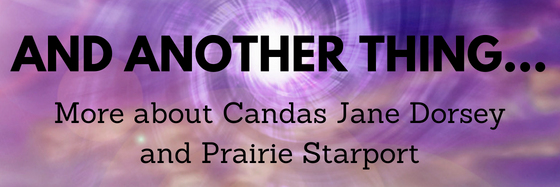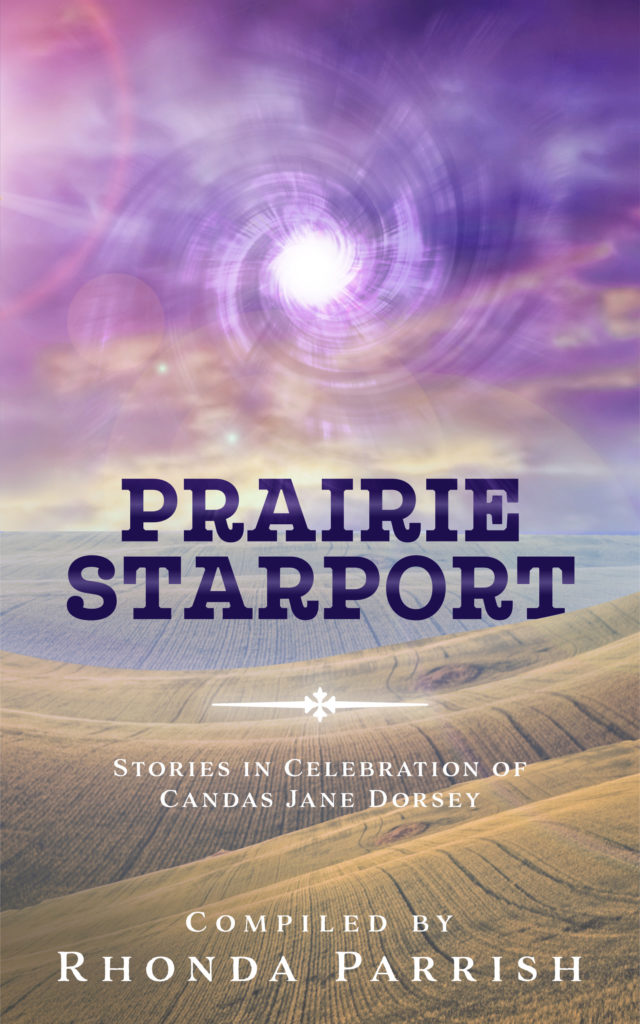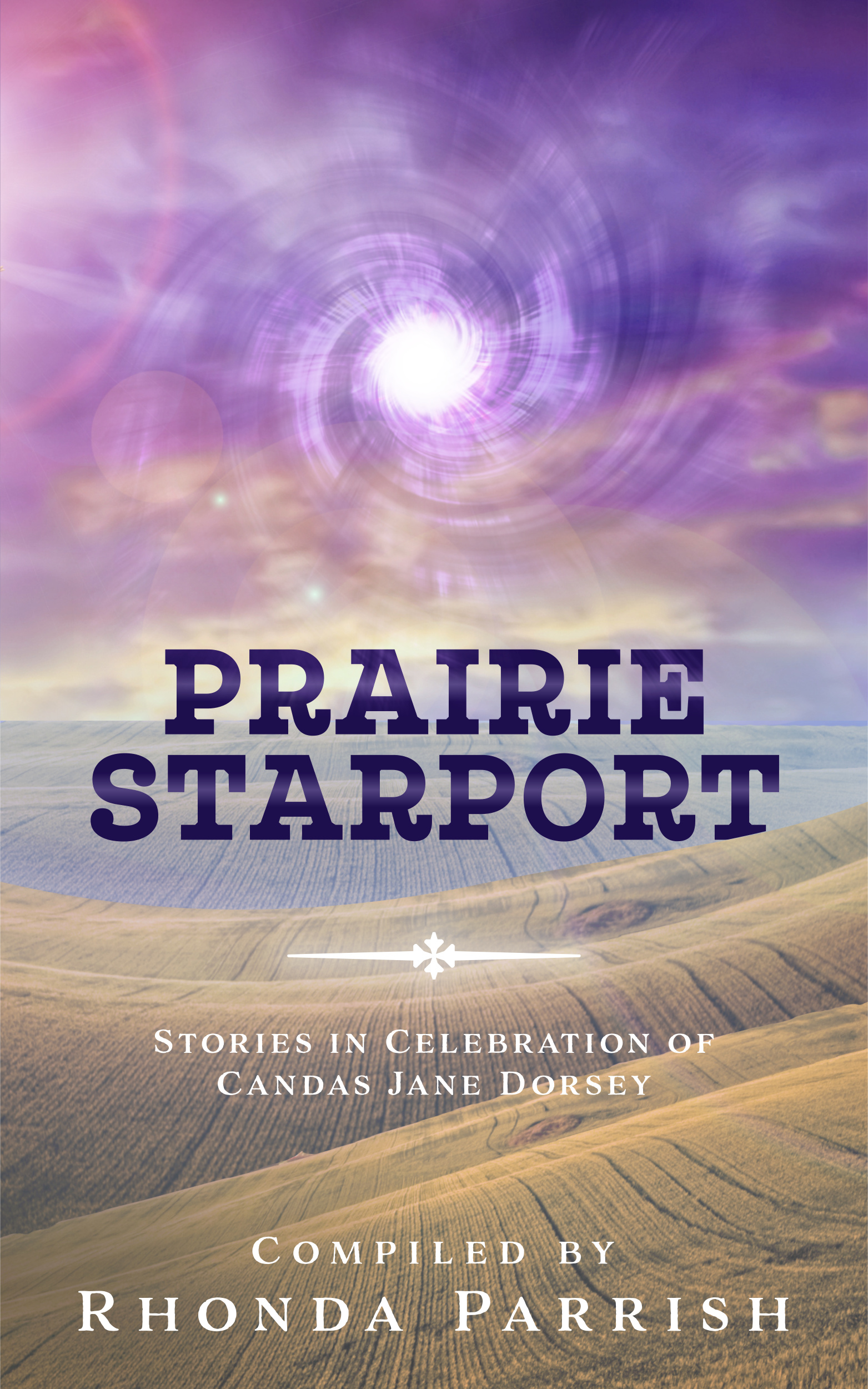We recently celebrated the release of Prairie Starport: Stories in Celebration of Candas Jane Dorsey but some of the contributors wanted to do something a bit more. And so for several Fridays I was honoured to feature more stories about Candas and the anthology in the form of guest posts on my blog. Today’s entry is going to conclude this series which I called:

Thoughts about one of the Queens of True North SF
by Gregg Chamberlain
I’ve been a fan of speculative fiction since I was kid watching Rocket Robin Hood on CBC and getting a Tom Corbet, Space Cadet juvenile hardcover for a Christmas present one year. Over the years my taste in speculative fiction has broadened and, I hope, matured (though I can still sing both the opening and closing theme songs for Rocket Robin, and will do so despite all attempts to stop me. BIG GRIN).
But for a long while, I thought all the writers of sf and fantasy were either British or American (Jules Verne being the sole exception to the rule). I didn’t know that A.E. Van Vogt was Canadian, though I enjoyed reading Slan. While in high school I discovered H. A. Hargreaves’ North by 2000 collection of short stories and I was amazed. The stories were good, although a bit depressing in their depiction of the future, and that was my impression of Canadian SF then. Cold, bleak, and dark. Kind of like the middle of January in Northern Ontario (and I know what I am talking about, since my family spent two years in the Kenora/Rainy River area—first time ever heard the boom of ice cracking on a river late at night in the middle of winter while the cold stars blinked in the midnight sky).
Now, I did know there were women who wrote sf. Andre Norton and Leigh Brackett were two of my favourite authors, both then and now and always. But again, they were not Canadian sf writers. By a curious chance, during my senior year in high school while the family was living in Kenora, I met in person with Phyllis Gotlieb during a humanities class field trip. But she was introduced to us as a poet, not a writer, and certainly not a writer of speculative fiction. Though she did treat us to a short reading from her novel, Sunburst, during the poetry workshop session with my class. But I did not clue in that this was an actual living breathing Canadian SF writer!
Fastforward to my college years and my somewhat brief nationalist phase. By then I knew there were Canadian sf writers. Giants of the field like Van Vogt and Gordon Dickson, yet Gotlieb was still the only female Canadian sf writer than I knew about (finally figured that much out, I did).
Then, during a trip to visit with the cousins down in the Greater Vancouver area (also known as the Lower Mainland to most of us in B.C.), I discovered the White Dwarf book store. Heaven. Bakka Books in Toronto may be the Mecca for any Canadian sf fan’s mandatory pilgrimage. But the Dwarf was always the one mandatory stop for me any time I was in down in Vancouver town.
There I found Machine Sex and Other Stories by Candas Jane Dorsey. And I was amazed. This was a kind of sf I had never seen before or even imagined. It was edgy, it was off the wall, it was just bloody unbelievably WOW!
I have never met Ms. Dorsey. But then I’ve met in person only a very few of the writers whose works I have enjoyed and loved and treasured over the decades. When you live in the boondocks of Canada most of your life, far from the big cities of Vancouver or Calgary, Toronto, or Montréal, you don’t get a lot of chances to attend sf conventions or hang out with all that many of your fellow sf fans. I am lucky that I was able to attend at least one WorldCon (Torcon 3 is the place for me! Yaaaaay! BIG GRIN again).
Doesn’t matter. I have the words of Ms. Dorsey and all the others. Words which have filled me with wonder, sometimes made me weep, other times had me rolling on the floor laughing, and often left me rubbing my chin and going “hmmm”.
Dorsey and Company all inspired me to put down my dreams into words, and also gave me the courage to send those words out into the wild and see if they might fly. Some crash and burn. But others are soar upwards seeking the stars.
Thank you, Candas Jane Dorsey. I am proud to do my part to honour both your work and the legacy of creativity you gifted all of us.
Gregg Chamberlain
Plantagenet, Ontario (at present)
May 25 2018 (for now)

Download it for free at:
BookFunnel
Kobo
Playster
Apple
Also available at Amazon
Paperback available at Amazon:
.com
.co.uk
And add it to your shelves at Goodreads
All profits from this collection will be donated to the Bent Arrow Traditional Healing Society in Candas’ name.




